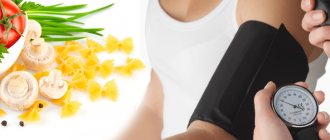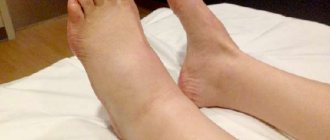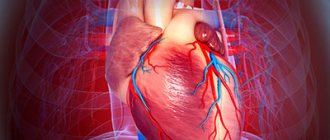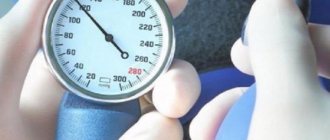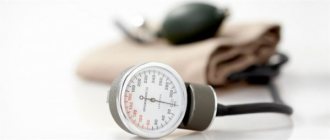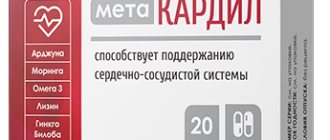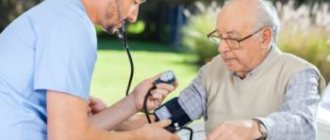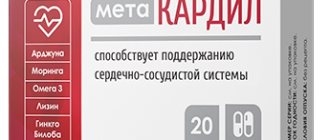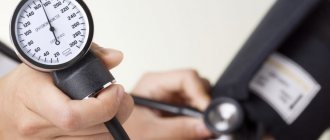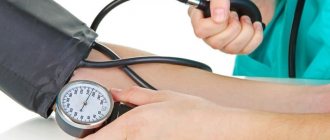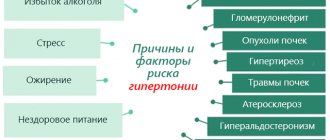Taking medications to reduce high blood pressure is helpful. However, they often don't work as well as they should. So why doesn't blood pressure drop after taking the pills? It turns out there are several reasons for this. For example, many people who suffer from this disease and take special medications lead unhealthy lifestyles. They smoke cigarettes, drink alcohol and eat unhealthy foods, thereby reducing the effect and effectiveness of treatment. Hypertension cannot be completely cured; patients take medications throughout their lives. To avoid serious complications, you must follow your doctor's instructions.
Basic antihypertensive drugs
It is impossible to list here all the drugs intended for people suffering from arterial hypertension. However, to better understand the problems of cardiology, it is worth considering some antihypertensive drugs.
Heart attacks and strokes account for approximately 70% of deaths on Earth. A blockage in the heart or arteries in the brain kills seven out of ten people. Almost all seven are caused by surges in blood pressure associated with hypertension.
It is imperative to combat high blood pressure. This, of course, does not cure the disease, but only helps to achieve normal levels.
The first line presents the most popular and effective drugs with which you can start therapy:
- Enap, Lisinopril, Captopril, Moex. These tablets belong to the group of ACE inhibitors (angiotensin-converting enzyme). Their main properties are the expansion of peripheral vessels. They do not depress the heart and are therefore safely prescribed to cardiac patients.
- Hypothiazide, Indap, Veroshpiron. They belong to the category of diuretics. They increase the amount of urine produced, which helps lower blood pressure. Prescribed together with drugs of the first group.
- Atenolol, Betakor, Bisoprolol, Nebilong. These are beta blockers. They act on the receptors of the heart muscle, reducing cardiac output. Helps patients suffering from angina and arrhythmia.
- Lozap, Irbetan, Vazar. They fall under the category of angiotensin II receptor inhibitors. These are new drugs that provide a 24-hour antihypertensive effect. Unlike drugs in the 1st position, they have no side effects - no dry cough.
- Verapamil, Diltiazem, Amlodipine. Included in the category of calcium channel antagonists. They are distinguished by the fact that after taking them, the face turns red, the heart rhythm is disturbed, and a headache appears.
Based on the drugs listed above, combination drugs have been developed, such as Enap-N, Triampur, Tonorma, Liprazide, etc. Many of them contain a diuretic, which is responsible for reducing the amount of fluid in the human body. Second-line medications are prescribed by doctors if a patient experiences serious side effects or if the patient cannot tolerate taking first-line pills. Often the reason for choosing these drugs is the lack of financial resources, because not every patient can buy expensive drugs for the rest of his life.
So, the list of second-line drugs includes:
- Prazosin, Phentolamine. They belong to alpha-blockers. After taking them, complications such as strokes and heart failure often occur. The undoubted and only plus is the reduction of cholesterol. Very rarely prescribed.
- Rutherpine, Raunatin. It belongs to the group of rauwolfia alkaloids. They are cheap but have many side effects. Doctors do not recommend them to their patients. However, some hypertensive patients self-medicate and continue to buy it.
- Clonidine, Methyldopa, Dopegit. Part of the alpha2-agonists. They affect the central nervous system. Their use is characterized by drowsiness, lethargy, and headaches. Methyldopa and Dopegyt are often prescribed to pregnant women because they are safe for unborn children.
- Dibasol, Apressin. These drugs are included in the group of direct-acting vasodilators. They dilate blood vessels, so the effect of their use is immediate. However, prolonged administration leads to insufficient oxygen supply to the brain. Mainly used as a one-time injection when emergency care is required.
Warning. Only cardiologists prescribe the dose and treatment plan. Do not choose a medicine for yourself as the wrong medicine is the reason why the pills do not work properly.
How to treat hypertension?
Treatment of hypertension begins with determining blood pressure levels. As a rule, the doctor prescribes:
- daily blood pressure measurements at home;
- keeping a blood pressure diary;
- 24-hour blood pressure monitoring.
The next stage of treatment is lifestyle correction, namely:
- normalization of body weight;
- limiting the consumption of table salt;
- increased physical activity;
- giving up bad habits (smoking, alcohol).
In some cases, this is enough to normalize blood pressure and drug therapy is not required.
But if no positive result is observed within 12-16 weeks, then, based on the data obtained, the doctor selects antihypertensive treatment. There are several main groups of drugs that are used in the treatment of arterial hypertension:
- ACE inhibitors;
- beta blockers;
- calcium antagonists;
- diuretics.
Rules for selecting medications for high blood pressure
It should be understood that medications will not help those people who do not want to change their lifestyle, continue to smoke cigarettes, drink alcohol, eat unhealthy food, and exercise little.
Medicines are selected only by doctors; they take into account the patient’s age and the mechanism of disease progression, which is of two types:
- Blood vessel. The development of hypertension is the result of prolonged vasoconstriction, forcing blood to circulate through narrowed vascular channels. The tablets are prescribed with the understanding that the effect of the drug will be relaxing and the blood vessels will dilate as the process progresses.
- Kidneys. Because the kidney tubules do not filter sufficiently, fluid is retained and the amount of blood circulating in the body increases. With this mechanism, it is not surprising that swelling occurs inside and outside the body. Vasodilator tablets are useless in this case. Effective treatment is achieved with drugs that can normalize kidney function.
When choosing a drug, doctors take into account changes occurring in the patient’s organs. They are trying to prescribe a drug that will ease the symptoms of hypertension and have a therapeutic effect on the affected body systems, preventing further development of the pathology.
Hypertension: don't let yourself be pressured!
Is it all because of nerves? - Hello, Doctor! My job is stressful. I began to notice that my blood pressure was rising - 140/90. Is it true that everyone's blood pressure starts to rise as they age? Vyacheslav, 35 years old, Minsk - Currently there is no such thing as age-related pressure. Doctors use the concept of optimal blood pressure. At rest it should be 120/80. And it should be the same for you. — It turns out that an 80-year-old grandmother’s blood pressure should be 120/80? - Absolutely true, but only if there are no problems with cerebral circulation, which is very rare at this age. - So, if my blood pressure was 135-140/90, it’s time to take care of myself? — I would advise you to check your blood pressure first. Arterial hypertension can only be detected by systematically measuring blood pressure. Often the increase in pressure is asymptomatic. A blood pressure of 140/90 is considered stage 1 hypertension. You need to analyze when it goes up. — Can I do strength exercises if I have stage 1 hypertension? — Physical activity for arterial hypertension (AH) in general, and especially for 1st degree hypertension, causes a positive therapeutic effect. But if it leads to a sharp increase in blood pressure (more than the age norm) or blood pressure does not recover to normal for a long time, then it is necessary to reduce it. — Tell me, where and how can I measure the level of cholesterol in my blood? — Currently, medical examination of the population is being carried out in Belarus. At the clinic at your place of residence, take a referral for a biochemical blood test and take it. The same can be done in our center. We conduct a complete study of the lipid spectrum: we determine low- and high-density cholesterol, triglycerides, and atherogenicity coefficient. — Everything is probably expensive here? — We are not a commercial structure, but a state one, that’s why our prices are affordable. Oh, how dizzy... - I have had high blood pressure for several years. I measured it today - 230/110. I didn't feel it before. When I get up in the morning, my blood pressure doesn’t increase, but by the time I get dressed, my numbers increase, I feel dizzy, and I even begin to see worse. Please advise what to do? Lyudmila Dmitrievna, 59 years old, Krupki - It is impossible to feel an increase in blood pressure. It is detected only through systematic measurement. When a person experiences a headache or dizziness, this indicates a lack of blood circulation in the brain. You need to examine the blood vessels of the brain and consult a neurologist. I would advise you to take medications for a long time that improve cerebral circulation: Cavinton 1 tablet 3 times a day or Fezam - it improves both vascular tone and coronary circulation. — The pressure jumped to 160/100. Headache. I called an ambulance and they gave me an injection of papaverine. But my head still hurts. I take the medicine occasionally. I'm going through menopause now. Lyudmila, 48 years old, Shcharkovshchina - First of all, you need to regularly measure your blood pressure (keep an observation diary); if your blood pressure increases, you should constantly take antihypertensive drugs, which should be prescribed by a doctor, taking into account your general condition (menopause). Additionally, consult a gynecologist-endocrinologist who will correct your hormonal status and prescribe additional treatment. This will also help stabilize blood pressure levels. — I also suffer from dizziness. — The cause of dizziness may be cerebral circulatory insufficiency caused by a number of diseases: cerebral atherosclerosis, osteochondrosis of the cervical spine, etc. Get an additional examination from a neurologist. — My blood pressure is sometimes low, sometimes high - 150. At the same time, it always leads me to the left. I am taking nefidipine. Elena Antonovna, 77 years old — Nefidipine is a drug that, when taken, can cause a sharp decrease in blood pressure. Currently, it is not used for long-term continuous use. Given your age, we can assume that you have cerebral atherosclerosis, which causes cerebral circulatory failure. A sharp decrease in blood pressure (below 140/90) while taking nefidipine further worsens cerebral circulation, so you experience weakness, dizziness and lack of coordination (leads to the left side). You should take other antihypertensive drugs, such as lisinopril 5-10 mg 2 times a day. I wish you good health and may you live to be 100 years old! Hypertensive crisis - I was admitted to the hospital with a hypertensive crisis. I have been taking Diraton 5 mg daily for a year now. The doctor recommended drinking it constantly. When I do this, once every two weeks my blood pressure drops sharply and I feel unwell. What to do? Inna Mikhailovna, 46 years old, Minsk —If taking the drug causes a decrease in blood pressure below normal, it is necessary to reduce the dose or replace it with a drug of another group. Stopping an antihypertensive drug completely can lead to a hypertensive crisis (which could be the case in your case). — I also have heart problems, I take Egilok 1 tablet 25 mg 3 times a day. — But egilok not only affects the functioning of the heart, but also reduces blood pressure! Therefore, look, perhaps the decrease in blood pressure is due to the fact that you are taking prescribed medications at the same time. Make a break between their techniques. “The pressure has been growing a lot lately. In December she suffered a hypertensive crisis. Now I take lisinopril at a dosage of 5 mg once a day. Alla Ivanovna, 53 years old, Bykhov - This dosage is not enough for you. If blood pressure rises to 200, this is already grade 3 hypertension. This disease cannot be treated with one drug. Usually a combination of medications is used. The dosage of lisinopril prescribed to you, of course, cannot control the pressure, hence you have a hypertensive crisis and an increase in blood pressure. - What should I do? — Each doctor’s prescription requires monitoring the effectiveness of the prescribed therapy. At the onset of the disease, one drug is prescribed (monotherapy); if the effect is insufficient, a combination of drugs is prescribed. Blood pressure correction should be gradual over 3-4 months to reach optimal levels (120/80 at rest). One of the best combinations are drugs from the ACE inhibitor group (enam, enap, lisinopril, captopril, etc.) in combination with low doses of diuretics (hypothiazide, indapamide). If there is no effect, a combination of more than two drugs from different groups is possible until the target numbers are achieved. — What non-drug treatment can help? — Non-drug methods, including physiotherapy (electric sleep, Shcherbakov collar, magnetic therapy), hydrotherapy (improves peripheral circulation, dilates blood vessels, thereby reducing blood pressure), underwater shower massage, circular shower, as well as mineral pearl, iodine-bromine, sulfide , dry carbon dioxide baths are indicated for stabilizing blood pressure. This allows you to improve the course of the disease, reduce the dose of antihypertensive drugs, and reduce the risk of developing complications of hypertension. The examination will show - Although my blood pressure tends to rise, I try to keep it at 140/90. There are problems with the heart, it sometimes stings and hurts. I take berlipril. What drugs should be supplemented with treatment? Lyudmila Ivanovna, Drogichin - First of all, we should clarify the cause of pain in the left half of the chest: are these attacks of angina or pain not associated with cardiovascular disease? After all, all the signs you indicated are characteristic (End. Beginning on page 4) both for spinal osteochondrosis and for disturbances in the activity of the autonomic nervous system. To clarify the diagnosis, Holter monitoring can be performed. You will be connected to a small monitor for a day, which will sensitively record all changes in the work of the heart and record an electrocardiogram. The patient himself keeps a diary on this day, in which he indicates the time and nature of the deterioration of his condition. After this, the specialist will decipher the data obtained and answer the question whether the pain is associated with worsening coronary circulation or whether other causes should be looked for. To improve heart function, drugs are prescribed that increase metabolic processes in the muscle. They reduce her oxygen consumption, and therefore increase her tolerance to physical activity: preductal MR 35 mg, 1 tablet 2 times a day for a long time. It is also recommended to consume foods rich in potassium and magnesium. - I suffer from low -95/70 - blood pressure. After lunch I feel tired. At times there is a sharp pain in the heart. I can't sleep on my left side and back. There are no bad habits. I also have high cholesterol, as well as osteochondrosis of the cervical spine, and my left arm hurts in the forearm area. Alexander Yakovlevich, Tolochinsky district - Pain in the left half of the chest and in the left forearm can be caused by osteochondrosis of the cervical spine. To exclude ischemic heart disease (angina attacks), you need to perform bicycle ergometry. You perform a certain amount of work (pedal a bicycle), while an electrocardiogram is recorded. If specific changes are noted on the ECG, a diagnosis of angina pectoris is made. When performing the entire amount of work without changing the ECG, it is necessary to pay attention to the spine. Therefore, before prescribing treatment, you need to undergo further examination. — You haven’t said anything about cholesterol yet. — Cholesterol is a factor in the development of atherosclerosis. Its level should not exceed 5.2 mmol/l. You should reconsider your diet, exclude foods rich in animal fats, and we are not only talking about lard and meat, but also other foods with a high percentage of fat content. Include foods that lower cholesterol in your diet: vegetables, fruits, sea oily fish. There is no alternative! — I suffer from stage 2 hypertension, risk III, I take pills. I was told that this diagnosis is lifelong. Are there alternative treatments? Alexey Nikolaevich, Senno - 2nd degree hypertension requires constant use of antihypertensive drugs. Therefore, there can be no alternative to this. But by eliminating risk factors that worsen the course of hypertension (low physical activity, increased body weight, salt intake, alcohol, smoking), you can positively influence the course of your disease and reduce the dose of antihypertensive drugs, reducing the incidence of complications of hypertension. Pay attention to your physical activity, blood cholesterol levels, and waist size (for men it should be less than 100 cm). — What folk remedies can be used? — You can use herbal preparations: motherwort, hawthorn, lingonberry leaf, chokeberry, but such treatment will be additional, and the main one will be medication. Arterial hypertension is a chronic disease. Unfortunately, it cannot be cured. — Which drugs are the best? - There are currently many antihypertensive drugs - 6 main groups. They are prescribed by a doctor individually, taking into account concomitant diseases. There are combination drugs, for example Noliprel, Equator, Acupro, etc. How to “drive away” cholesterol - In 1993, I suffered a massive heart attack. Now I feel very bad, my chest is burning. What could it be? Vladimir Maksimovich, Cherven - These are signs of angina pectoris - manifestations of coronary artery disease. The heart muscle experiences oxygen starvation due to narrowing of the coronary vessels - against the background of their atherosclerotic damage. First aid for pain is nitroglycerin under the tongue. You should always have it at hand. In the future, long-acting nitro drugs are prescribed according to a flexible schedule. — I'm going through a hormonal storm. I have high cholesterol. I take statins and follow a diet low in animal fats. Are there procedures at the Republican Center for Medical Rehabilitation and Balneotherapy that help lower blood cholesterol levels? Olga Fedorovna, Minsk - A woman up to a certain age, due to her hormonal status, is protected from increased cholesterol levels. But there comes a time when the level of estrogen (female sex hormones) in the female body decreases, then the cholesterol content in the blood increases. In addition to following a diet, cholesterol reduction is facilitated by an increase in physical activity: exercise therapy, a swimming pool, and dry carbon dioxide baths. Does it help? Then accept... - The neighbor’s husband suffered a heart attack, but this is not reflected in the cardiograms. How can this be? Vera Maksimovna, Minsk - Yes, in the case of a small-focal heart attack, when necrosis (formation of a connective tissue scar instead of the dead heart muscle) does not extend to the entire depth of the heart wall, changes on the ECG may be absent. An additional research method is cardiac ultrasound. — One more question: how often can you change blood pressure medications to avoid addiction? — There is no addiction to antihypertensive drugs. They can be used for as long as desired, as long as they help effectively control blood pressure. The fact is that arterial hypertension is a chronic, slowly progressive disease, and at a certain stage, previously prescribed treatment becomes insufficient. Then the doctor must either prescribe the same drug, but increasing its dose, or prescribe it in combination with other antihypertensive drugs. — My upper blood pressure is constantly elevated - 160-180. And the bottom one is normal. What should I do? Alexandra Vasilievna, 60 years old, Baranovichi - What do you take for blood pressure, and how does it help? - Enalapril. After administration, the pressure decreases, but not below 140. - This increase in blood pressure is called isolated systolic arterial hypertension and also requires the use of antihypertensive drugs. Try ACE inhibitor drugs, for example lisinopril 10 mg 2 times a day. If ineffective, consult a doctor to select therapy. — I’m also taking cardiomagnyl. — This drug is not an antihypertensive drug, but reduces blood viscosity, thereby reducing peripheral resistance and helping to improve the course of arterial hypertension. Why am I swelling? — I have very high blood pressure, I take amlodipine, and I swell a lot. I take 5 mg in the morning and the same amount in the evening, as well as enalapril 20 mg, 1 tablet per day. Tamara Mikhailovna, Minsk - The action of amlodipine, which belongs to the group of drugs - calcium antagonists, is based on the expansion of peripheral vessels, a decrease in peripheral resistance, as a result of which blood pressure decreases, but edema may also appear. Severe swelling requires discontinuation of the drug. Try this combination: in the morning - lisinopril with a diuretic (hypothiazide, indapomide) and, if there are no contraindications, additional adrenergic blockers. Cancel the medicinal “holidays”! “I suffer a lot because of my blood pressure, and I can’t normalize it. In the last three months, the disease has worsened - the pressure reaches 240. Nikolai Nikolaevich, 53 years old, Minsk - Do you regularly measure your blood pressure? - In a day or two. — Do you take antihypertensive drugs regularly? — Basically, yes, however, I take breaks for 2-3 days. - With such breaks, you can reach hypertensive crises. A complication of this condition may be acute cerebrovascular accident (cerebral infarction). No breaks allowed! What are you taking? — Egilok and captopril 2 times a day. — Captopril is a short-acting drug. Currently used mainly to relieve hypertensive crises. You need to prescribe combination therapy, which may include long-acting drugs: ACE inhibitors (lisinopril or perendopril) in combination with low doses of diuretics (hypotheazid, indapamide), as well as calcium antagonists (amlodipine, normodipine). If hypertension is combined with an increase in the number of heart contractions, adrenergic blockers (metaprolol, atenolol, bisoprolol) are effective. — My husband is 60 years old, he has very high blood pressure - 240/140. They gave him injections, prescribed pills - nothing helps! Galina Ivanovna, Dyatlovsky district - What pills does he take? — Lisinopril, enalapril 10 mg 2 times a day, adelfan, he was given magnesium injections. — Your husband has stage 3 hypertension, and taking one drug from the ACE inhibitor group (lisinopril, enalapril) is not enough. Combination treatment is necessary (prescription of drugs from other groups: adrenergic blockers, diuretics, calcium antagonists, angiotensin II receptor blockers). Don't try to suddenly lower your blood pressure. To correct treatment, it is better to consult a doctor once again without self-medicating. All about risks - I am a disabled person of the 2nd group. I was diagnosed with coronary artery disease, cardiosclerosis, arterial hypertension of the 2nd degree, risk IV. What does “risk IV” mean? Nikolai Alekseevich, 66 years old, Minsk - The degree of arterial hypertension is determined by the level of blood pressure. And the degree of risk is determined based on the presence of one or more risk factors: high cholesterol, excess weight, bad habits, heredity, age. The lesion of target organs (angiopathy of the vessels of the retina, kidney vessels, hypertrophy of the left ventricle), as well as the presence of associated diseases, that is, diseases that worsen the course of hypertension, primarily diabetes mellitus, vessel atherosclerosis, was anamnesis, is also taken into account. Acute myocardial infarction, brain heart attack. - And how many risks exists? - Four. Therefore, you should clearly adhere to the doctor's recommendations. And - be healthy!
To the point!
During the day, blood pressure can change by more than 50 mm Hg. Art. So, at night, blood pressure decreases and becomes minimal around 3 a.m., then begins to rise again. The critical period is from 6 to 12.00. It is at this time that the greatest number of myocardial infarctions and cerebral strokes occur. Typically, blood pressure levels are higher in winter than in summer. This is due to seasonal fluctuations in air temperature.
Why is high blood pressure dangerous?
The development of pathological changes in the heart, kidneys, brain, retina. Headache, contrary to the popular belief that it is the main and obligatory manifestation of hypertension, is often absent. As a result of arterial hypertension, such serious complications appear as coronary heart disease (which means heart attacks, various rhythm disturbances, angina), cerebral stroke (bleeding in the brain), and renal failure. According to data presented at the European Congress on Arterial Hypertension, an increase in pressure of 6 mm Hg. Art. increases the incidence of strokes by 60 percent and the risk of heart attacks by 20 percent. Moreover, the risk of cerebral stroke in drinkers is 3-4 times higher than in non-drinkers.
What do human vessels “love”?
First of all, foods high in microelements: K, Mg, Ca, I. Fresh and dry vegetables, fruits, berries are rich in potassium: apricots, grapes, peaches, black currants, watermelon, apricots, dried apricots, figs, prunes, baked potatoes, cabbage. Magnesium and calcium - raisins, figs, rose hips, shells of buckwheat grains, oats, wheat, as well as peas, beans, soybeans. Essential sources of iodine: seaweed, shrimp, squid, flounder and other types of ocean fish.
Causes of high blood pressure after taking antihypertensive drugs
If a patient takes only part of the prescribed pills and skips them, blood pressure does not fall and as a result remains high. When returning to the attending physician for a consultation, a person usually always asks for another medicine. To avoid serious problems, it is important to follow your doctor's instructions carefully.
In patients taking medications, it is also considered a non-lowering factor for blood pressure. Birth control, painkillers, or anti-inflammatory pills should not be taken at the same time. They nullify the effect of antihypertensive drugs.
Insufficient effectiveness of medications
According to the mechanism of treatment with antihypertensive tablets, they are divided into two groups. From the first drugs they are prescribed more often, after taking them a more pronounced effect is observed. The human body is individual, so it is necessary to be under the supervision of a specialist for at least 2 weeks. This will allow him to understand the dynamics of the disease and evaluate the effect of the drug. If he deems it necessary, he will prescribe other pills.
There are often times when the medications you choose are good for lowering your blood pressure, but now they no longer help. This is due to the transition of arterial hypertension to the next phase or the development of concomitant pathology. To find out the cause, it is necessary to conduct a comprehensive examination.
Pheochromocytoma
This concept is used when detecting a disease of the adrenal glands, which is accompanied by increased production of adrenaline and norepinephrine. Excess of these hormones increases blood pressure.
This process is accompanied by symptoms such as:
- sudden attacks of fear and panic;
- increased sweating;
- cardiopalmus;
- dry throat;
- headache;
- heat.
This condition is too dangerous, because hemorrhage cannot be ruled out.
Wrong combination of drugs
In case of ineffective treatment, it is assumed that the therapy carried out by the doctor is incorrect. After taking pills, the effect of some neutralizes the effect of others. Nonsteroidal anti-inflammatory drugs do not combine with blood pressure medications. They also should not be taken with oral contraceptives.
To prevent such problems, the doctor should be informed about all medications taken by the patient.
Salt retention in the body
All people with hypertension need to know that consuming large amounts of salt leads to an increase in blood, which in turn causes swelling and a constant increase in blood pressure. Salt retention in the body can be caused by kidney problems. It is these organs that are responsible for the enzyme that secretes salt. When there is not enough of it, fluid accumulates, causing abnormal pressure. In such cases, diuretics are prescribed.
This information is an excellent reason for a comprehensive examination of the patient. This pathology helps to identify kidney pathology using ultrasound.
What is hypertension?
Hypertension (also known as essential hypertension) is a persistent increase in blood pressure above the limit of 139/89 mmHg. Art. in people not receiving antihypertensive treatment. An increase in blood pressure has a negative effect on the body, which leads to disruption of the heart, brain, kidneys, vision, and changes in blood vessels. These organs are the targets of this disease, and, depending on their damage, there are 3 stages of hypertension .
initial stage
At this stage, the pressure rises irregularly, quickly normalizes on its own without taking medications, while other organs (target organs) are not affected.
Stable increase in blood pressure
At this stage, blood pressure can only be reduced with medications. In this case, damage to one or more target organs appears.
Stage of pronounced changes
Blood pressure is persistently elevated. Target organs are affected. There may be complications such as stroke, heart attack, etc.
Also, there is such a thing as “degree of arterial hypertension”, it reflects the level of pressure rise.
There are 3 degrees of arterial hypertension
1st degree: 140-159/90-99 mmHg. Art.
2nd degree: 160-179/ 100-109 mmHg. Art.
3rd degree: 180/110 mmHg. Art. and higher
What to do if the pressure does not decrease and how to provide first aid
When the pressure does not drop, all therapy is reviewed, additional diagnostics are carried out, and lifestyle is adjusted.
As part of emergency assistance, the following actions are performed at a consistently high speed:
- The patient lies horizontally or in a sitting position, the head should be elevated;
- medications prescribed by a doctor are administered;
- blood pressure is measured every quarter of an hour and a medical team is called;
- for chest pain or angina pectoris, nitroglycerin is placed under the tongue; if it continues, it is a heart attack;
- In case of severe anxiety, the patient will be helped by valerian, Corvalol, Valocordin.
Drowsiness, weakness and dizziness are often signs of a stroke.
Other methods: how to lower blood pressure
To normalize blood pressure, traditional treatment is often used. The following methods stand out in particular:
- The cloth is soaked in apple cider vinegar and placed on the heels for 10 minutes.
- Mustard powder is diluted in the sink and the legs are lowered into the container.
- Crush a few cloves of garlic in a glass of milk. The resulting mixture is drunk 1 tablespoon three times a day after meals for 2 weeks. The product is prepared every 2 days.
- Mix 1 medium onion, 4 cloves of garlic and 1 tablespoon of rowan, then add cool boiled water, bring to a boil and simmer for 15 minutes. Then 1 tablespoon of herbs is poured into the container - parsley, wheatgrass, dill. The decoction should be set aside for 1 hour, then 1.5 tablespoons 30 minutes before meals four times a day. Course 10 days. The jar is stored in a cold room.
- The bark of the mulberry tree is peeled, washed, crushed, and stewed. Infuse the product for a day, drink instead of water.
It happens that hypertension is not treated with pills, so it is not possible to correct the blood pressure without surgery. In such cases, only surgery can alleviate the patient's condition.

